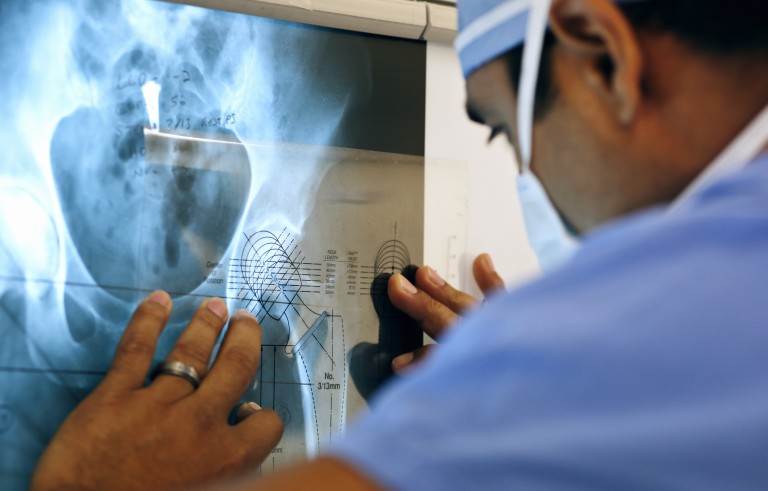HARI SREENIVASAN: The growing popularity of critical access hospitals, small hospitals in mostly rural areas, is posing a dilemma for people needing or wanting surgery.
For many in those areas, these hospitals may be more convenient, but a Wall Street Journal investigation has found the risk of serious or fatal complications during major orthopedic surgery is greater there than at a general hospital.
Christopher Weaver is one of the reporters on that story. He joins me now to discuss it.
So, what's the problem that's happening at these hospitals?

CHRISTOPHER WEAVER, The Wall Street Journal: So, the hospitals are doing more and more of a procedure that is lucrative for almost any kind of hospital, hip and knee replacements for in-patients.
The problem is, they're not doing it enough more to be as good as it as bigger hospitals that have much lower rates of people dying after the surgeries.
HARI SREENIVASAN: Right. So, usually, you would think that, the more you do, the better you get at it, the lower complications, right?
CHRISTOPHER WEAVER: Sure.
So, the average in 2013, right, the average critical access hospital was doing about 26 of these procedures a year. It's about 130, I think, for general hospitals. The experts say that the safest hospitals do about 100.
And even as they are growing, right, you would think that would lead to better outcomes. But some of them are growing from two, three, five a year to like 13 or 12. And experts say that's just not enough to do them well.
HARI SREENIVASAN: And what are we talking about in terms of outcomes? How much more dangerous is it?
CHRISTOPHER WEAVER: Yes.
So, we asked some researchers at Harvard to help us figure that out, because you need to adjust for things, like whether patients might be sicker in rural areas or older and so forth.
And what they found, right — and it complements our own findings — I think it was about nine in 1,000 people die within 30 days of getting one of these procedures at a critical access hospital. That is almost 80 percent more than at a typical general hospital, where the rates are about five per 1,000.
HARI SREENIVASAN: OK.
So, why are these hospitals in these critical access or these rural areas doing this and specializing in this? I mean, I think of a rural hospital, saying, OK, maybe I'm just the nuts and bolts, making sure that you are OK from a heart attack or a cold, not specifically a hip or knee replacement.
CHRISTOPHER WEAVER: Sure.
So, in the late '90s, Congress set up a totally different way to pay these critical access hospitals, compared to your typical — your town memorial, right. The critical access hospitals get paid based on their costs, 101 percent of their costs by Medicare.
The result is that doing lucrative procedures like hip replacement results in bigger — a bigger amount of money to them than it might to a typical general hospital that gets paid a flat rate for doing each case.
HARI SREENIVASAN: So, what is the recourse here? Is there a way to undo this?
CHRISTOPHER WEAVER: You know, it's tough, because these places are often sort of the only hospital in a local service area.
And Medicare needs to balance the fact that they want people to be able to have access to emergency treatment for things like heart attacks, with their concerns, which they seem to share, right, about the kinds of patterns that we're seeing and the quality and the kinds of surgeries that the hospitals are performing.
You know, some experts that we have been speaking with suggest that maybe they should get this special payment only for those kinds of emergency procedures that the public would want to have there, right, and then not for perhaps elective procedures that patients might be better served to get at bigger hospitals somewhere else.
HARI SREENIVASAN: Christopher Weaver of The Wall Street Journal, thanks so much for joining us.
CHRISTOPHER WEAVER: Sure.











